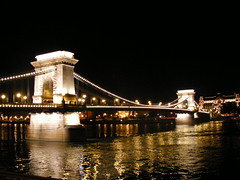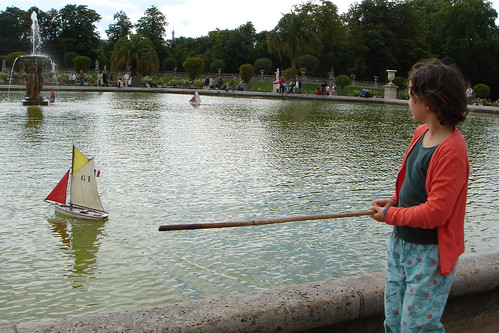I must admit I didn’t know Hungary was until recently considered an economic powerhouse of Eastern Europe. My limited time there last week left me with neither the impression that it was an extremely well off country, nor the opposite.? At the same time I did notice plenty of construction projects seemingly left unfinished, and infrastructure (like public transport) that looked like it hadn’t received new investment since the 1980’s.
There was talk among Hungarians and expats that I met about the terrible economy, with many expressing that it hadn’t been that bad in a long time.? But even then it wasn’t obvious to me how bad it really was.
 Today I read about the rise and fall of the Hungarian economy, and immediately following that, the plan to pump money into that economy.? Among the reasons for its fall? A government burning through alot of money and taking on alot of debt.? One of the lowest employment rates in Europe.
Today I read about the rise and fall of the Hungarian economy, and immediately following that, the plan to pump money into that economy.? Among the reasons for its fall? A government burning through alot of money and taking on alot of debt.? One of the lowest employment rates in Europe.
With the IMF’s 25.1 billion dollar bailout of the Hungarian economy, it isn’t clear – as is so often true with bailouts, if this will turn things around.? The term “tighten their belts” is thrown around alot.? Which begs the question, at a time when so many people are in need of help, where can the government afford to make deep cuts without doing harm to an already wounded citizenry.? Then again, I noticed Hungarians are tough, maybe tightening of the belt is precisely something they would be up for.
 As we sat back laughing about old songs from yeast radio and the crap you find on youtube, Madame and I returned to a familiar theme… life in the US. We spoke about friends and family and what situations they are in; as in housepayments, mortgages, insurance payments, loans, credit card debt, etc etc. All these things may be part of your normal day dear reader, but what we were discussing is how we don’t have these things. Beyond that, how when some friends talk to us, they say “you’ll so lucky, you get to live in europe and you don’t have to deal with this.” This statement, of course, has many holes. Not the least of which is that you can actually have lots of these things in Europe just as you do anywhere else. However, the idea that we are somehow lucky for having chosen to live where we live, that’s the strange thing.
As we sat back laughing about old songs from yeast radio and the crap you find on youtube, Madame and I returned to a familiar theme… life in the US. We spoke about friends and family and what situations they are in; as in housepayments, mortgages, insurance payments, loans, credit card debt, etc etc. All these things may be part of your normal day dear reader, but what we were discussing is how we don’t have these things. Beyond that, how when some friends talk to us, they say “you’ll so lucky, you get to live in europe and you don’t have to deal with this.” This statement, of course, has many holes. Not the least of which is that you can actually have lots of these things in Europe just as you do anywhere else. However, the idea that we are somehow lucky for having chosen to live where we live, that’s the strange thing.